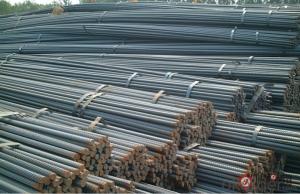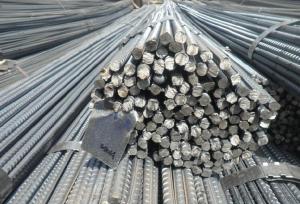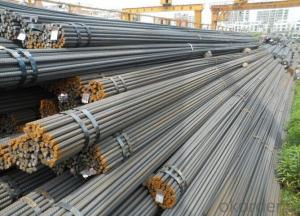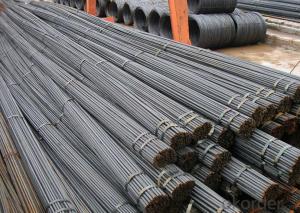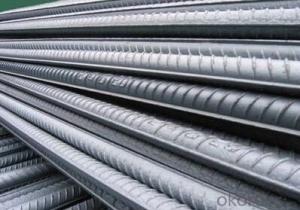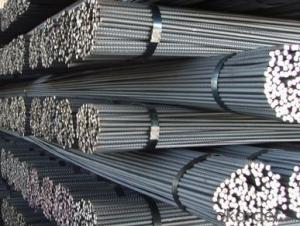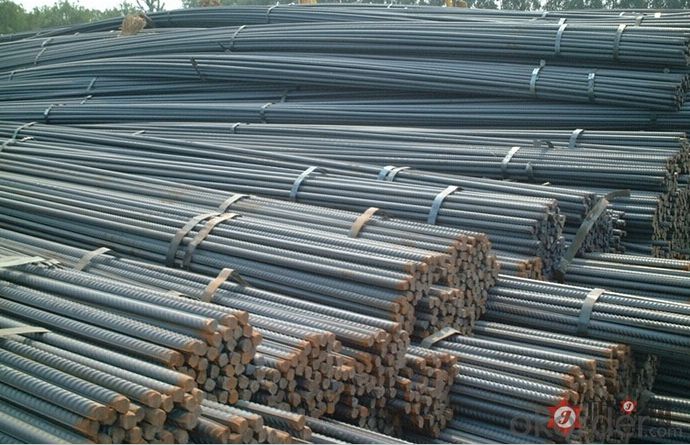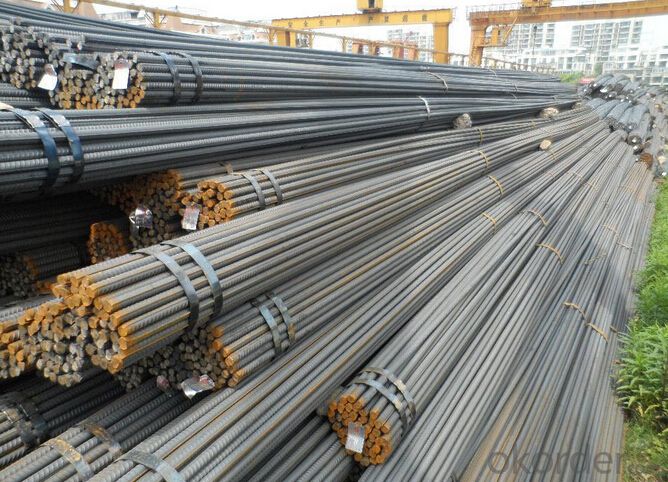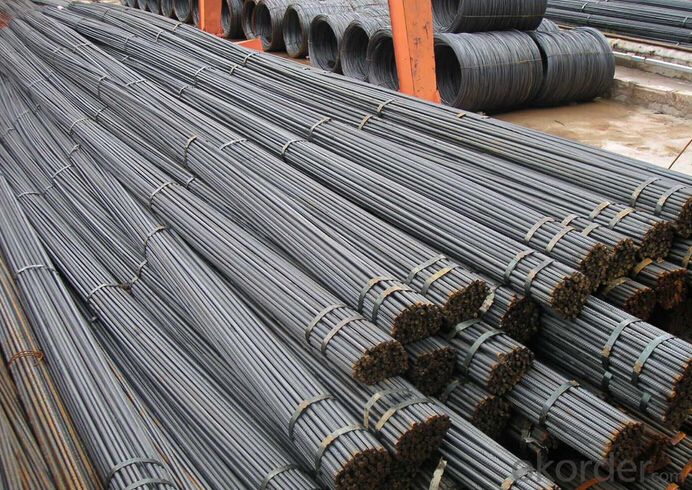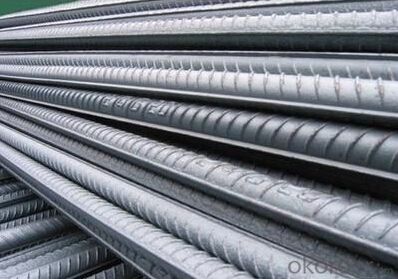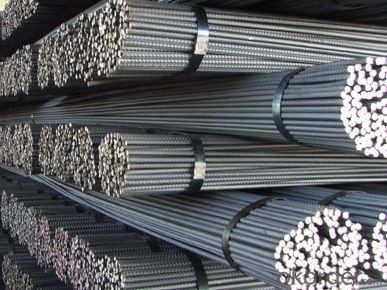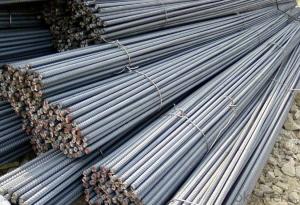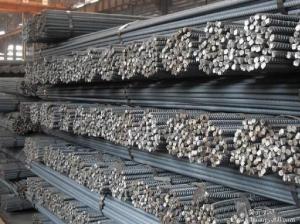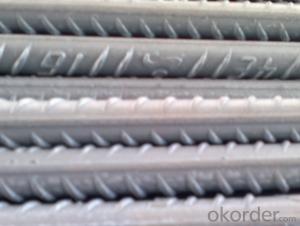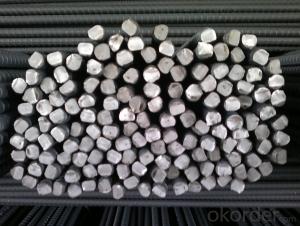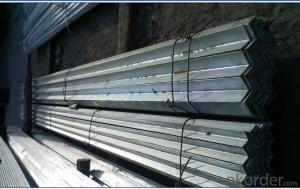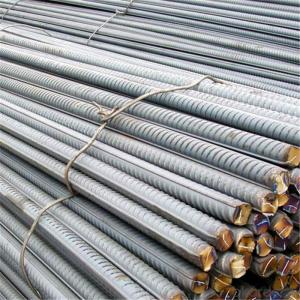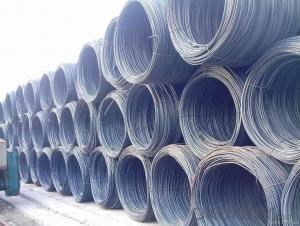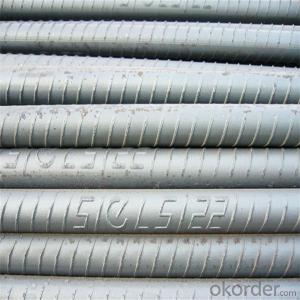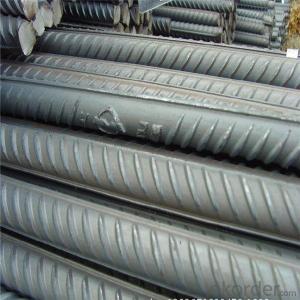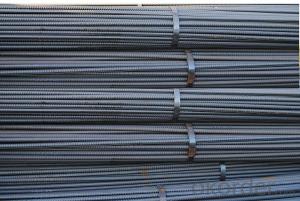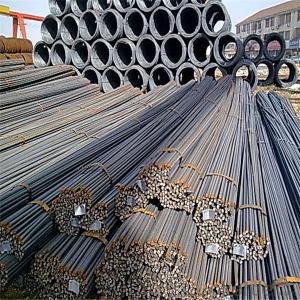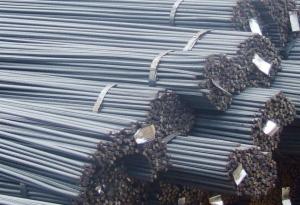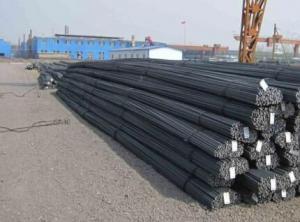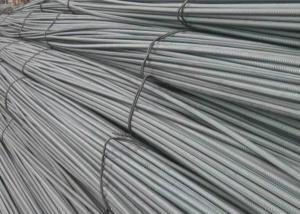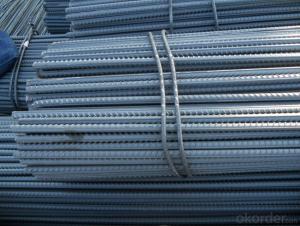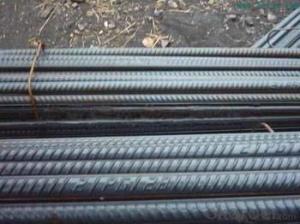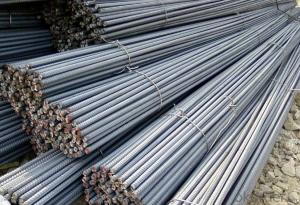Iron Rods For Construction/Concrete Material
- Loading Port:
- Tianjin
- Payment Terms:
- TT OR LC
- Min Order Qty:
- 100 m.t.
- Supply Capability:
- 10000 m.t./month
OKorder Service Pledge
Quality Product, Order Online Tracking, Timely Delivery
OKorder Financial Service
Credit Rating, Credit Services, Credit Purchasing
You Might Also Like
Specification
Standard:
AISI,JIS,GB,BS,DIN,API,EN,ASTM
Technique:
Hot Rolled,Cold Rolled,Cold Drawn,ERW,Forged,Saw,Extruded,EFW,Spring
Shape:
U Channel,Square,C Channel,Hexagonal,Round,Rectangular,Oval,LTZ
Surface Treatment:
Galvanized,Coated,Copper Coated,Color Coated,Oiled,Dry,Chromed Passivation,Polished,Bright,Black,PVDF Coated
Steel Grade:
Q195,Q215,Q235,Q215B,Q235B,RHB335,HRB400,200 Series,300 Series,400 Series,600 Series,SS400-SS490,10#,20#,A53(A,B)
Certification:
ISO,SGS,BV,IBR,RoHS,CE,API,BSI,UL
Thickness:
8-32
Length:
12
Net Weight:
10
Iron Rods For Construction/Concrete Material
Iron Rods For Construction/Concrete Material
| Standard & Grade: | GB1499-98 : HRB335,HRB400,HRB500 |
| BS4449-1997 : GR460,GR500 | |
| CAN/CSA-G30.18-M92 : 400W | |
| ASTM A615 : Gr.40, Gr.60 | |
| Diameter: | 6mm;8mm;10mm;12mm;14mm;16mm;18mm;20mm;22mm;25mm;28mm;30mm;32mm;35mm;40mm |
| Length: | 6m,9m,12m |
| Packing: | Bundle packing |
| Origin: | China |
| Application: | Construction,Road,Machinery processing,Welding fields. |
| Delivery time: | 10-25 days |
| Shipment: | By bulk vessel or Container |
| Documents: | Mill Test Certificate,Commercial Invoice,Packing List,Certificate of Origin |
Company Introduction of the Iron Rods For Construction/Concrete Material
CNBM International Corporation is the most import and export platform of CNBM group(China National Building Material Group Corporation) ,which is a state-owned enterprise, ranked in 270th of Fortune Global 500 in 2015.
With its advantages, CNBM International are mainly concentrate on Cement, Glass, Iron and Steel, Ceramics industries and devotes herself for supplying high quality series of refractories as well as technical consultancies and logistics solution.

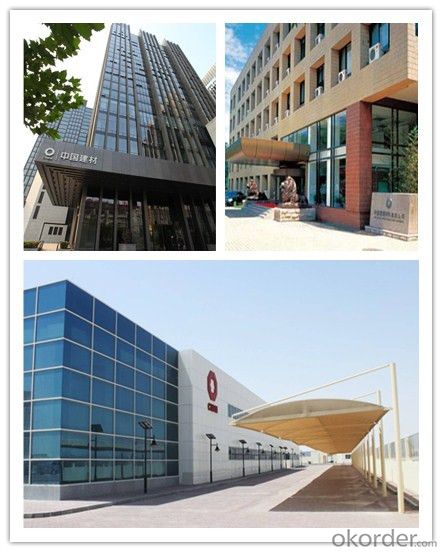
Packaging & Delivery of the Iron Rods For Construction/Concrete Material
| Packaging Detail | Sea worthy packing /as per customer's packing instruction |
| Delivery Detail | 15 ~ 40 days after receiving the deposit |
FAQ
| Are you a trading company or manufacturer? | Manufacturer |
| What’s the MOQ? | 1000m2 |
| What’s your delivery time? | 15-20 days after downpayment received |
| Do you Accept OEM service? | Yes |
| what’s your delivery terms? | FOB/CFR/CIF |
| What's the Payment Terms? | 30% as deposit,70% before shipment by T/T |
| Western Union acceptable for small amount. | |
| L/C acceptable for large amount. | |
| Scrow ,Paybal,Alipay are also ok | |
| Why choose us? | Chose happens because of quality, then price, We can give you both. Additionally, we can also offer professional products inquiry, products knowledge train (for agents), smooth goods delivery, excellent customer solution proposals. |
| What's your available port of Shipment? | Main Port, China |
| What’s your featured services? | Our service formula: good quality+ good price+ good service=customer's trust |
| Where are your Market? | Covering more than 160 countries in the world |
- Q: How do steel rebars contribute to the seismic performance of a structure?
- Steel rebars contribute to the seismic performance of a structure by enhancing its strength and ductility. When embedded in concrete, rebars act as reinforcement, providing tensile strength to resist the forces generated during an earthquake. This reinforcement helps prevent cracking and failure in the concrete, allowing the structure to better absorb and dissipate seismic energy. Additionally, the flexibility and high yield strength of steel rebars enable them to deform and absorb seismic forces, reducing the likelihood of structural collapse during an earthquake.
- Q: Can steel rebars be used in retrofitting existing structures?
- Yes, steel rebars can be used in retrofitting existing structures. Retrofitting involves strengthening or upgrading the structural components of a building to improve its performance and safety. Steel rebars are commonly used in this process as they provide added strength and reinforcement to the existing structure, helping it withstand increased loads or seismic forces.
- Q: What are the maintenance requirements for steel rebars in a structure?
- The maintenance requirements for steel rebars in a structure are crucial to ensure the stability and longevity of the building. Steel rebars, also known as reinforcing bars, are used to enhance the strength of concrete structures and resist tension forces. Here are some key maintenance requirements to consider: 1. Visual Inspection: Regular visual inspections should be conducted to detect any signs of corrosion, cracks, or damage in the rebars. This can be done by qualified personnel who have knowledge and experience in identifying structural issues. 2. Cleaning: The rebars should be kept clean from any debris, dirt, or chemicals that can accelerate corrosion. Adequate cleaning methods, such as using water and mild detergents, should be employed to maintain their condition. 3. Corrosion Protection: Steel rebars are susceptible to corrosion, especially in environments with high humidity, exposure to saltwater, or chemical pollutants. Applying protective coatings like epoxy or zinc can help prevent or delay corrosion, increasing the rebars' lifespan. 4. Repair or Replacement: If any rebars are found to be severely corroded, cracked, or damaged, it is essential to repair or replace them promptly. Ignoring these issues can compromise the structural integrity of the building and lead to safety hazards. 5. Monitoring: Continuous monitoring of the rebars' condition is recommended to detect any changes or deterioration over time. This can involve using advanced techniques like ultrasonic testing or electrical potential measurements to assess the rebars' integrity. 6. Proper Drainage: Ensuring proper drainage systems in the structure can help prevent water accumulation and reduce the chances of corrosion in the rebars. Properly designed and maintained gutters, downspouts, and waterproofing measures can help minimize water exposure. 7. Regular Maintenance Schedule: Establishing a regular maintenance schedule is crucial to ensure that all the necessary inspections, cleaning, and repairs are carried out systematically. This helps in identifying potential issues early on and taking corrective actions promptly. By adhering to these maintenance requirements, the steel rebars in a structure can be preserved, contributing to the overall safety, durability, and longevity of the building. Regular maintenance not only prevents costly repairs but also ensures the structural integrity required for the safety of occupants and the longevity of the structure.
- Q: Are steel rebars prone to rusting?
- Yes, steel rebars are prone to rusting.
- Q: How do steel rebars affect the overall construction cost of industrial buildings?
- The overall construction cost of industrial buildings can be significantly influenced by steel rebars. These rebars are utilized to reinforce concrete structures, providing strength and durability. The cost is directly affected by the amount of steel rebars required in a building project, as the price of steel is a major component of the overall construction expenses. To begin with, the size, design, and complexity of the industrial building determine the quantity of rebars needed. Larger buildings or those with intricate architectural features may necessitate a greater number of rebars, resulting in increased costs. Furthermore, the design and engineering requirements for seismic or wind resistance can also impact the quantity of rebars, thus affecting the construction budget. Furthermore, the cost can be influenced by the quality and grade of the steel rebars used. Higher-grade rebars, such as those with superior tensile strength or corrosion resistance, may entail higher expenses. Nevertheless, the utilization of higher-grade rebars can provide long-term benefits by enhancing the structural integrity of the building and reducing maintenance and repair costs throughout its lifespan. Additionally, transportation and handling costs contribute to the overall cost. Steel rebars are heavy and bulky, necessitating careful handling and transportation to the construction site. The distance between the steel supplier and the site can have a significant impact on transportation costs. Moreover, the storage and protection of rebars on-site must be considered to ensure their quality, which may result in additional expenses. Lastly, labor costs associated with the installation of steel rebars should be taken into account. Skilled labor is required to accurately place and tie the rebars according to design specifications and building codes. The complexity of the reinforcement design can affect the time required for installation, ultimately influencing labor costs. In conclusion, steel rebars are of utmost importance in the construction of industrial buildings as they reinforce concrete structures. The quantity, quality, transportation, and labor costs associated with steel rebars directly affect the overall construction cost. Therefore, careful planning and consideration of these factors are necessary to effectively manage the budget of industrial building projects.
- Q: How do steel rebars improve the structural integrity of a building?
- Steel rebars, also known as reinforcement bars, play a crucial role in enhancing the structural integrity of buildings. They are used in concrete construction to provide strength, durability, and resistance to various forces that a structure may encounter. One key way steel rebars improve the structural integrity of a building is by increasing its load-bearing capacity. When concrete is reinforced with rebars, it becomes more capable of withstanding heavy loads and forces such as those generated by gravity, wind, earthquakes, or even dynamic loads from human activities. The rebars act as a reinforcement network, distributing the load more evenly throughout the structure, preventing excessive deflection, and minimizing the risk of structural failure. Moreover, steel rebars improve the tensile strength of concrete, which is traditionally weak in tension. Concrete is great at bearing compression forces but lacks the ability to effectively resist pulling or stretching forces. By incorporating rebars into the concrete, the combination of materials works together to withstand both compression and tension forces more efficiently. This prevents cracks and fractures from propagating in the concrete, as the rebars act as a support system that holds the structure together. Another advantage of using steel rebars is their resistance to corrosion. Steel is highly durable and can withstand harsh environmental conditions, reducing the risk of degradation over time. This ensures the longevity of the building's structural elements and decreases the need for costly repairs or replacements. Additionally, steel rebars provide flexibility in design and construction. They can be molded into various shapes and sizes to accommodate specific structural requirements, making it possible to optimize the distribution of reinforcement where it is needed most. This flexibility allows architects and engineers to design buildings that are both aesthetically pleasing and safe, without compromising on structural integrity. In conclusion, steel rebars significantly improve the structural integrity of buildings by increasing load-bearing capacity, enhancing tensile strength, resisting corrosion, and providing design flexibility. By reinforcing concrete, they ensure that structures are better equipped to withstand various forces and maintain their stability and safety over time.
- Q: How do steel rebars affect the flexibility of a concrete structure?
- The flexibility of a concrete structure can be greatly influenced by steel rebars. These rebars, which are essentially steel bars inserted into the concrete to provide reinforcement, improve the strength and durability of the structure. By increasing the tensile strength of the concrete, the presence of rebars makes it more resistant to cracking and bending when subjected to external loads. Steel rebars help to prevent localized stress concentrations by distributing the load evenly throughout the entire structure. This is particularly important in areas like beams or columns, where a significant amount of weight or pressure can be concentrated. Acting as a support system, the rebars effectively transfer the load to different parts of the structure, ensuring that the concrete can withstand the applied forces without failing. Furthermore, steel rebars offer flexibility to the concrete structure by allowing for controlled cracking. Concrete is a brittle material that tends to crack under tensile stress. However, the presence of rebars helps to control and limit the size and extent of cracks that may occur. By absorbing some of the tensile forces, the rebars distribute the stress and prevent the formation of large cracks. This enhances the overall flexibility of the structure, as controlled cracking permits slight movements and deformation without compromising the structural integrity. In conclusion, steel rebars play a vital role in improving the flexibility of a concrete structure. They reinforce the concrete and increase its tensile strength, thereby preventing cracking and bending under external loads. Moreover, the rebars enable controlled cracking, which aids in stress distribution and the maintenance of the concrete's structural integrity.
- Q: How do steel rebars contribute to the load-bearing capacity of structures?
- The load-bearing capacity of structures is enhanced by steel rebars in various ways. Firstly, they increase the tensile strength of the concrete, which is weak in tension despite its strength in compression. This addition of steel rebars significantly boosts the structural tensile strength, a crucial aspect considering the different loads structures face, such as dead loads (e.g. the structure's weight), live loads (e.g. occupants, furniture), and environmental loads (e.g. wind, earthquakes). Secondly, steel rebars aid in preventing cracking and improving the overall durability of the structure. Concrete has a tendency to shrink and crack due to factors like temperature changes and moisture. By incorporating steel rebars within the concrete, they act as reinforcement, ensuring a more even distribution of the load and decreasing the likelihood of cracking. This, in turn, enhances the longevity and structural integrity of the building. Moreover, steel rebars also provide support and stability to the structure, particularly against lateral forces that may arise during high winds or seismic events. By securely anchoring the rebars into the foundation or other structural elements, a strong connection is formed, capable of withstanding these lateral loads and safeguarding the structure from collapse or damage. To summarize, steel rebars play a vital role in enhancing the load-bearing capacity of structures through bolstering the tensile strength of the concrete, preventing cracking, and providing stability and support. Their integration into the structural design is paramount for ensuring the safety, durability, and long-term functionality of buildings and other forms of infrastructure.
- Q: How do steel rebars affect the flexibility of a concrete structure?
- Steel rebars can greatly affect the flexibility of a concrete structure. Rebars, which are essentially steel bars inserted into concrete to provide reinforcement, enhance the structural strength and durability of the concrete. The presence of rebars increases the tensile strength of the concrete, making it more resistant to cracking and bending under external loads. By distributing the load across the entire structure, steel rebars help to prevent localized stress concentrations. This is particularly important in areas such as beams or columns, where large amounts of weight or pressure can be concentrated. The rebars act as a support system, effectively transferring the load to different parts of the structure, ensuring that the concrete can withstand the applied forces without failure. Additionally, steel rebars provide flexibility to the concrete structure by allowing for controlled cracking. Concrete is a brittle material and tends to crack under tensile stress. However, the presence of rebars helps to control and limit the size and extent of cracks that may occur. As the rebars absorb some of the tensile forces, they help to distribute the stress and prevent large cracks from forming. This enhances the overall flexibility of the structure, as controlled cracking allows for slight movements and deformation without compromising the structural integrity. In summary, steel rebars play a crucial role in enhancing the flexibility of a concrete structure. They provide reinforcement and increase the tensile strength of the concrete, preventing cracking and bending under external loads. The rebars also allow for controlled cracking, which helps to distribute stress and maintain the structural integrity of the concrete.
- Q: How do steel rebars affect the workability of concrete?
- Concrete workability can be significantly impacted by the presence of steel rebars. Initially, steel rebars in concrete contribute to increased strength and structural integrity. They act as reinforcement by absorbing and redistributing tensile forces, preventing cracking or collapsing under load. However, the addition of steel rebars also has various effects on concrete workability. Firstly, it reduces the workability or slump of the concrete mix. Consequently, the concrete becomes less fluid and more challenging to handle, particularly during pouring and placement. The rebars create obstacles and impede the flow of concrete, demanding greater effort to properly place and compact the mixture. Moreover, steel rebars can lead to issues such as segregation and segregation of concrete. Segregation arises when the heavier rebars cause the aggregate to settle at the bottom, resulting in an uneven distribution of components in the mixture. This can negatively impact the concrete's strength and durability. Additionally, ensuring proper bond between the steel and concrete may require additional measures. Adequate cover depth and correct placement of rebars are crucial to fully embed the rebars in the concrete, providing the necessary reinforcement. Failing to achieve a proper bond can jeopardize the concrete's strength and structural integrity. In conclusion, steel rebars have both positive and negative effects on concrete workability. While they enhance the strength and durability of the concrete, they also reduce its workability and require additional considerations during the mixing and placement process. Effective planning and execution are necessary to incorporate the rebars efficiently without hindering the overall workability and performance of the concrete.
Send your message to us
Iron Rods For Construction/Concrete Material
- Loading Port:
- Tianjin
- Payment Terms:
- TT OR LC
- Min Order Qty:
- 100 m.t.
- Supply Capability:
- 10000 m.t./month
OKorder Service Pledge
Quality Product, Order Online Tracking, Timely Delivery
OKorder Financial Service
Credit Rating, Credit Services, Credit Purchasing
Similar products
Hot products
Hot Searches
Related keywords
